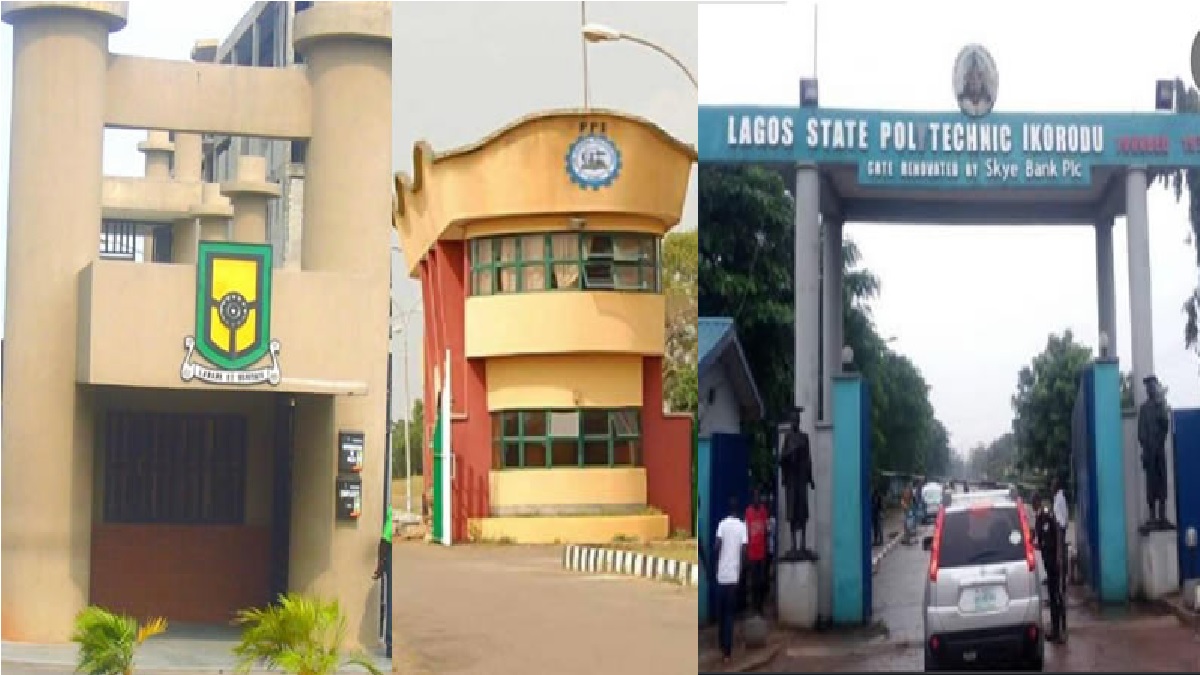Newsflash Nigeria reports that 24 polytechnics and colleges of education have been transformed into universities by the federal and state governments in Nigeria.
This move has been condemned by the Academic Staff Union of Polytechnics (ASUP) and education reform activists as a plot to “kill” technical education in the country.
They argued that the proliferation of universities in the country was not only unlawful but also detrimental to the sustainability of the existing institutions. They said that polytechnics and colleges of education play a vital role in producing middle-level manpower for the socio-economic development of the country.
Polytechnic education offers technical and vocational training, technology transfer and skills development, while colleges of education train professional teachers for vocational and technical secondary schools. These are in line with the National Policy on Education, which aims to achieve technological take-off for the nation.
However, these institutions have been neglected and underfunded by the governments, who prefer to convert them to universities without adequate planning and resources. Some of the recent examples are:
- The President Bola Tinubu-led Federal Government converted the Adeyemi College of Education and the Alvan Ikoku College of Education to universities.
- The former governors of Kano, Osun, Oyo, Sokoto, Ekiti and Delta states upgraded their state-owned colleges of education and polytechnics to universities.
- The Lagos State Governor, Babajide Sanwoolu, turned the Adeniran Ogunsanya College of Education and the Michael Otedola College of Education to the Lagos State University of Education. He also changed the Lagos State Polytechnic to the Lagos State University of Science and Technology.
- Some other affected polytechnics and colleges of education include the Abia State Polytechnic; Abia State College of Education; Abia State College of Health Sciences and Management Studies; Federal Polytechnic, Ilaro; Federal Polytechnic, Ofa; Yaba College of Technology; and the Kaduna State Polytechnic.
The Executive Secretary of the National Universities Commission (NUC), Prof Abubakar Rasheed, justified the upgrade of the institutions to universities as a way to increase access to university education for citizens.
However, the National President of ASUP, Dr Anderson Ezeibe, dismissed it as a frivolous upgrade and a “manifestation of lack of consistency in pursuit of vision by proprietors of public polytechnics in the country.”
He said: “Polytechnics were established to produce professionals in technical/technological and vocational education, which should address national manpower needs in such a direction.
“This is why the practical component in the curricula for polytechnics is higher as they are expected to produce people who can apply their knowledge and skills in solving real-life problems. This is not the same with universities.
“The question for those who are on this voyage of conversion, like the Lagos State Government, is whether the need for such manpower has been satisfied. The principal reason for the poorly-thought-out conversion is just because the enrolment figures are dropping across polytechnics due to the discrimination against the polytechnics and their products as well as the rustic and anachronistic policies of the government on degree-awarding status for the polytechnics.”
The ASUP President raised the alarm that the future of that level of tertiary education was at risk.
He added, “That’s the reason why our union is crying out as the future of the polytechnics is at stake. Our proposal of allowing polytechnics to attain degree-awarding status will resolve all these issues: satisfy the quest for degree-level certification, deepen technical/technological education through curricula enhancement, retain the expanding pool of qualified manpower in the polytechnics, attract funding, and stop the HND/degree dichotomy.
“We are saying that polytechnics should retain the OND certification as middle-level manpower and use the same as feed for a bachelor of technology certification to be awarded by polytechnics in their names as polytechnics if requirements to be set out for this are met.”
